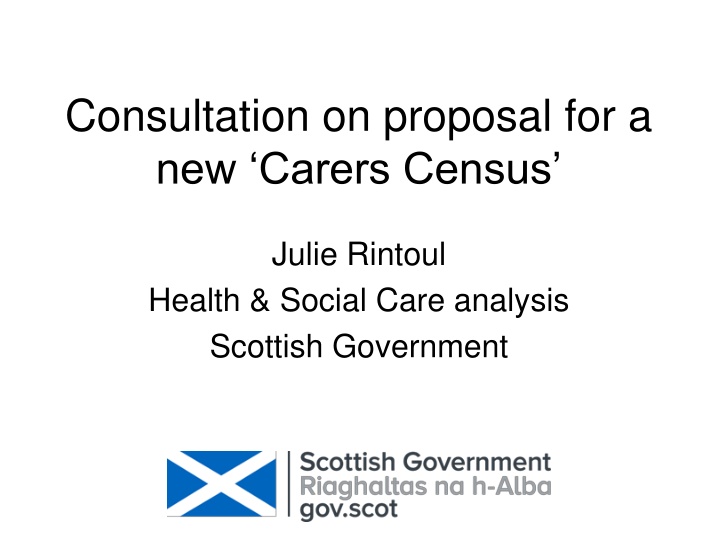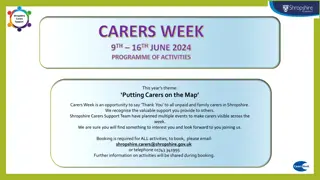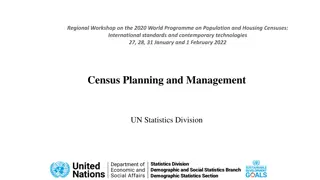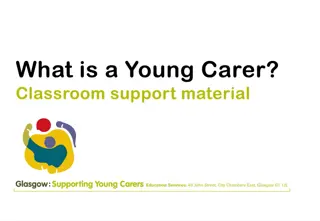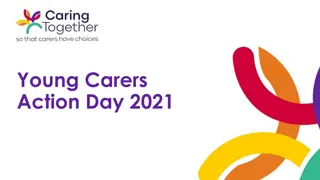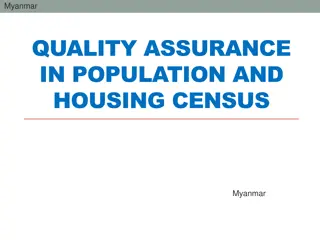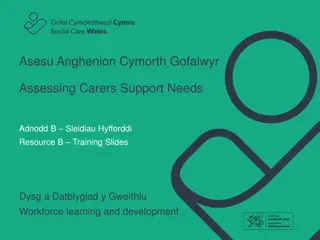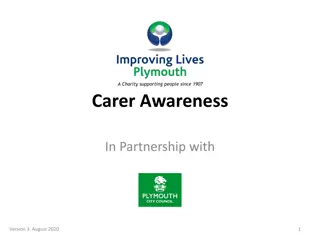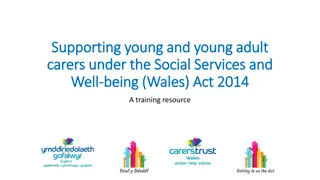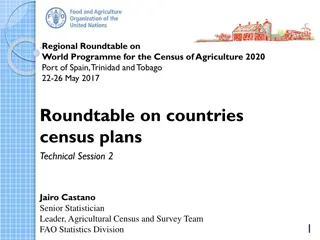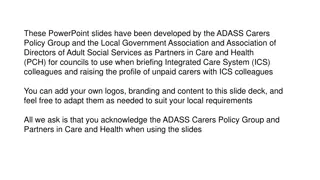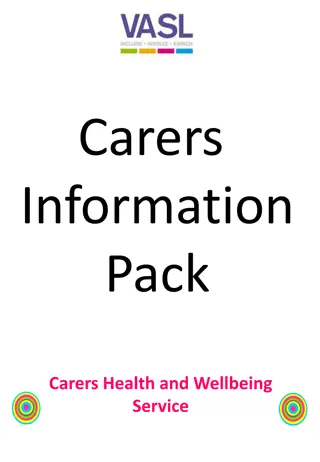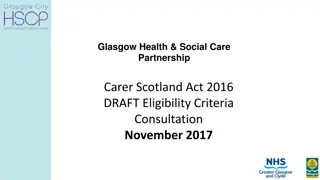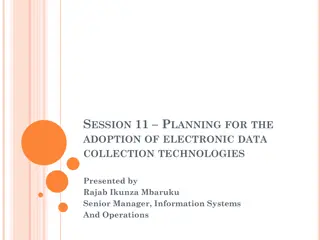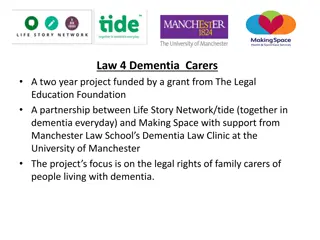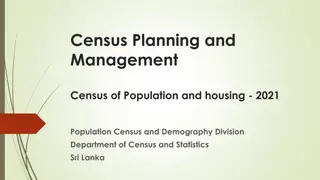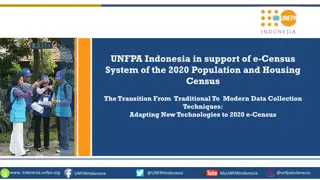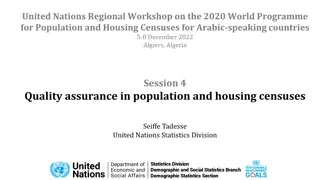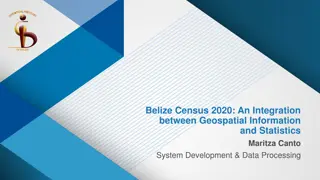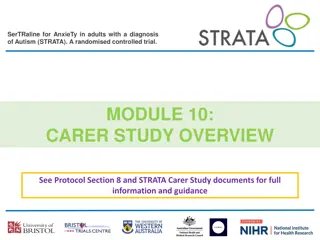Consultation on Proposal for a New Carers Census: Analysis by Julie Rintoul
This consultation received 36 responses from various organizations including Integrated Joint Boards, Carers Centres, and Local Authorities. Issues were raised regarding baseline data collection for carers, with a need for improved systems and definitions. Majority agreed on quarterly data collection, but challenges were noted. Different partnership areas will provide data, with a focus on unique identifiers and demographics. (Total characters: 495)
Download Presentation

Please find below an Image/Link to download the presentation.
The content on the website is provided AS IS for your information and personal use only. It may not be sold, licensed, or shared on other websites without obtaining consent from the author.If you encounter any issues during the download, it is possible that the publisher has removed the file from their server.
You are allowed to download the files provided on this website for personal or commercial use, subject to the condition that they are used lawfully. All files are the property of their respective owners.
The content on the website is provided AS IS for your information and personal use only. It may not be sold, licensed, or shared on other websites without obtaining consent from the author.
E N D
Presentation Transcript
Consultation on proposal for a new Carers Census Julie Rintoul Health & Social Care analysis Scottish Government
Consultation responses Received 36 separate responses from: 16 Integrated Joint Boards 8 Carers Centres 5 Local Authorities 4 individuals 2 National Carers Organisations 1 Social Work Scotland Responses from 25 different partnership areas
Baseline data for 2017-18 Issues raised regarding baseline data Majority have data on completed assessments Not all areas have systems in place to provide this data, many said system changes are needed or being developed Even where data exists it might be held as free text rather than coded data Often services for carers are recorded in the record for the cared-for person and difficult to extract from systems Services might be provided without formal assessment Children and families / young carers data less well completed Need universal definition of short breaks and replacement care Need to avoid double counting if data supplied by different bodies
Frequency of data collection Majority agreed that quarterly collection made sense for initial collection of this data but would like to see it become annual collection as quality and consistency improves Many thought would be challenging to complete quarterly due to: pressure of other work; other statistical returns to complete; development of new systems; restructuring of services; lack of funding. This means baseline data will likely be undercount of carers known locally
Who will provide data? 5 partnership areas commented that they hold all of the data on carers and would be able to provide full data for their area In all other areas it was noted that the Carers Centre and other third sector providers would also hold data and would need to contribute to the data collection in order to get the full picture
Data requested for Carers Response Unique ID number for the Carer Vast majority said yes CHI number for the carer Majority of carers centres said yes, minority of IJB/LA said yes Postcode Date of birth Gender Majority said no Ethnic group Length of time the carer has been providing care Number of hours the carer provides in a typical week Type of care the carer provides The impact of providing care on the carer
Data requested for cared-for person Response Vast majority said yes IDCarer UniqueID for cared for person Age group of cared for person Does carer live with cared for person Gender of cared for person Ethnic group of cared for person Client group of cared for person Relationship to carer
Care Assessment data For Adult Care Support Plan / Young Carers Statement: Response For Adult Care Support Plan / Young Carers Statement: Response source of referral for ACSP / YCS Carers support plan Short break provided date ACSP / YCS requested / offered type of ACSP / YCS new or review Number of short breaks received Replacement care provided ACSP / YCS completed (Y/N)? date completed Type of replacement care Daytime replacement care - hours Overnight replacement care - nights ACSP / YCS declined (Y/N)? date declined ACSP / YCS joint assessment with cared for person is carer willing to care majority said yes is carer able to care majority of carers centres said yes is carer eligible for support majority of IJB/LAs said yes carers support needs
